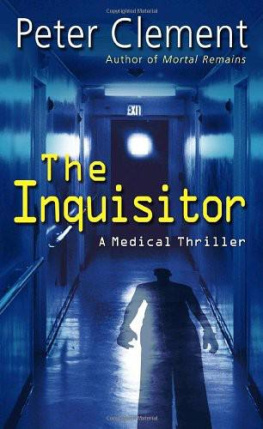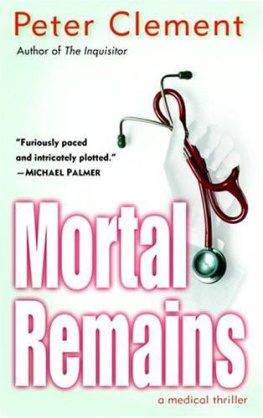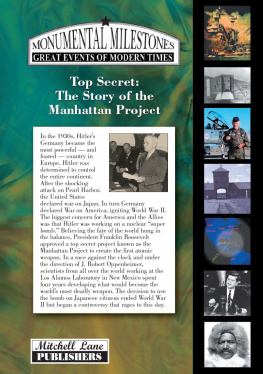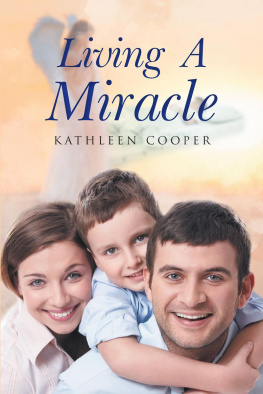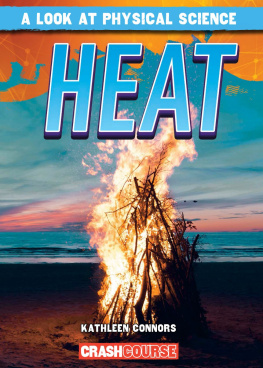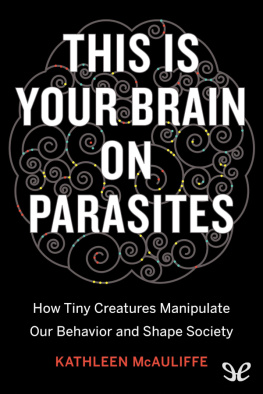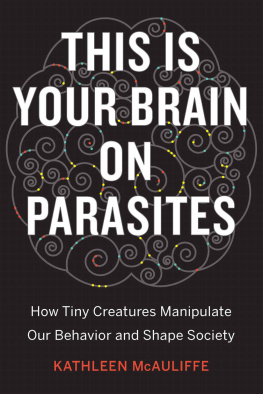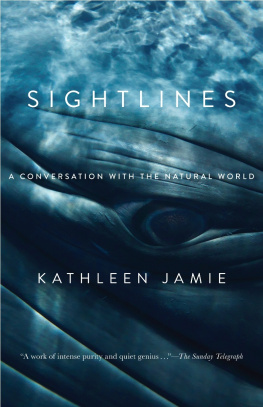BLURBfrom Amazon: A stem cell conspiracy endangers the lives of two prominentphysicians in Clement's latest, a crisp, fast-paced medical murdermystery that begins when geneticist Kathleen Sullivan blacks outwhile she's in bed with her partner, Richard Steele. Head of the ERat a prominent New York City hospital, Steele helps stabilize hercondition, but Sullivan's prospects look grim when bleeding in herbrain renders her paralyzed, though still conscious and able tocommunicate by blinking. Sullivan finds herself being treated by apair of corrupt doctors, one of whom capitalizes on her condition toinject something into her brain. Sullivan helps Steele and the policeget to the heart of a conspiracy that involves several doctors whoare trying to cash in on the lucrative potential of stem celltechnology by experimenting on human patients. But the program alsoarouses the ire of a lunatic from an anti-abortion group who startstaking out the guilty doctors in a variety of grotesque murders.Clement (Mutant; The Procedure) keeps the action sprinting alongthroughout, using concise medical explanations to keep the story fromgetting bogged down. His characters are rather forgettable Steele,Sullivan and the other doctors frequently veer toward stereotype, andthe killer is borderline cartoonish but Clement's plotting carriesthe day as he keeps his story line from going over the top at severalcritical junctures. His sense of command and ability to generatesuspense and tension make this a solid winner.
Critical Condition
By Peter Clement
Prologue
As a doctor, he knew how to wake up.
Especially when the phone was ringing.
Except It didn't sound like a phone. More like the whine of amosquito, or a dentist's drill.
And he couldn't seem to come out of the sleep that held him.
In fact he knew he shouldn't.
There was pain waiting for him up there. Better he stay In thedarkness down here.
But he was surfacing anyway.
First he felt his throat hurt. So what's a sore throat? Twoaspirins and call me in the morning stuff. Nothing to worry about.
The pain burned across his neck and up his face. He swallowed, andfelt he'd downed a mouthful of fire. What the hell, he said, butseemed to be speaking flames instead of words, their heat searing ahole out the front of his larynx with a loud hiss.
His head began to throb. And his arms. They were aching all theway from the shoulders, as if someone had grabbed his hands, yankedthem over his head, and was pulling him out of the deep blacknesswhere he wanted to stay.
He remembered. Waking up in the early gray of dawn and seeingsomeone by his bed who shouldn't have been there. He'd been about toshout, when a white explosion went off in his brain. He tried to callout again, alert someone now that there had been an intruder, but thehissing under his chin returned, and the pulling on his armscontinued.
He attempted to run. His feet seemed stuck together.
And the noise continued. A high-pitched whir that he definitelyknew was out of place.
Suddenly he was rocketing upward toward the light, unable to stop.His eyes flew open. He was in his shower stall, naked, suspended byhis arms from the nozzle above, his ankles taped together. The whineof what sounded like a small electrical motor came from outside thefrosted glass door of the cubicle, and he could see a shadowy formapproaching. He screamed for help, sending another gush of airwheezing out from below his chin. Someone had cut a hole in histrachea.
The door opened, and in stepped a figure clad in full surgicalgear carrying a rotary bone saw. He had no idea who it was. The eyesabove the mask were as giitteringiy cold as any he'd ever seen. Hebegan to writhe and buck against his restraints as the small spinningdisc of steel was brought up to his sternum. His shrieks when itsteeth tore through the skin and bit into the underlying ribs made nomore sound than the morning breeze that stirred the bathroom windowcurtains.
Chapter 1
Two Weeks Earlier, Wednesday, June 13, 6:45 a.m.
She felt the sound more than heard it.
It came from deep within her brain, and in the first few secondsseemed to have no more significance than the tiny popping noise acongested sinus makes when it clears, or the slight creak that even ahealthy neck can produce after the muscles and tendons have stiffenedfrom being too long in one position.
So Kathleen Sullivan ignored it, automatically relegating the minutesensation to the background trivia of everyday life, deeming it partof approaching forty, unimportant, therefore not to be heeded, andresumed making love to Richard Steele, whom she sat astride watchinghis eyes glitter in the gray traces of morning light that had begunto creep into her still-darkened bedroom.
God, she loved him. Their sex seemed always such a celebration of howthey matched each other in life.
Then the pain hit her at the base of her skull with the force of atwo-by-four. "Oh, my God!" she screamed, clasping the backof her head and freezing. She felt him initially increase hismovements, then slow when she failed to respond, his flushed, smilingfeatures growing puzzled.
A swirl of dizziness sent her reeling to the right as if she'd beenslapped. She toppled off him. Nausea overwhelmed her, and vomitarched out of her mouth as if shot from a hose. She flopped down,half on and half off his chest. Blackness came quickly, but it tooklonger before she lost sensation enough to stop feeling the painentirely.
And she could still hear.
"Kathleen! Kathleen, what's the matter?" he cried fromsomewhere far off.
Someone's prying open my skull from the inside, she tried to tell him just before thepressure squeezed all consciousness out of her.
The pain, like roots, ate deep into her sleep, and tendrils of harshlight ripped her out of the merciful dark. She tried to scream, butno sound came. She could see racks of bottles, bags of fluid, andcoils of plastic tubing lining the walls of whatever little room theywere in, yet everything looked wrong, as if outlined in double. Sheblinked to clear her vision; it made no difference. She couldn'tshift her eyes from side to side, but she could look up and down. Shetried to move her hands, but not even her fingers would budge. Hadthey tied her to the bed?
Someone loomed over her and placed a black mask on her face, thenpumped air into her mouth and down her throat.
"Her breathing's labored," she heard Richard say from aplace beyond her line of sight. "Step on it!"
"We're a minute from the door, Doc!"
She felt the room sway hard to the left, and realized they were in anambulance. Probably on the way to Richard's ER. But why couldn't shelook at him? Move anything? God, what had happened to her?
"It's okay, Kathleen," she heard him say. "We've gotyou. Just relax and let us help you breathe."
Volleys of air forced their way past the base of her tongue and downinto her larynx. Each one felt big as a tennis ball and filled herwith the urge to gag, but her pharynx stayed flaccid, refusing torespond. She wanted to shake off the mask and gasp for breath, yetcouldn't.
"If you can hear me, Kathleen, we've called ahead to thehospital, and the chief of neurosurgery is waiting for us. You'vesuffered some kind of stroke, probably hemorrhagic from the way it'saffected your eyes, but you'll make it okay, Kathleen. Count on it!"His voice trembled and broke, leaving her wondering if he'd sobbed.Squeeze after squeeze of air went down her throat. "Hyperventilatingyou like this blows off carbon dioxide and constricts arteries in thebrain," Richard continued, his words coming in fragments as ifthey were catching on something sharp. "That'll slow thebleeding."
With a squeal of brakes the vehicle lurched to a stop. Instantly sheheard the doors at her feet snap open and felt the cool morning airflow into the vehicle. Only then did she realize she was nude under ablanket.
Next page

